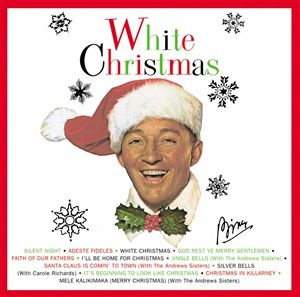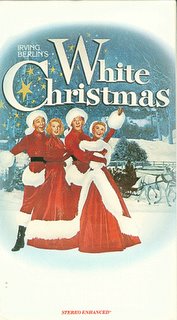
I was about to write a post about why I think the commercialization of Christmas is actually a good thing on the grounds that any publicity is good publicity. But then I found this article on the Web that pretty much says everything I was going to say.
So I will shamelessly copy this fellows article and reprint it here:
“You periodically hear Christians complain about how Christmas has become commercialized or secularized. It's not about Jesus Christ any more; it's about Santa Claus. It's not about God's love for us; it's about having fun with our friends. It's no longer celebrated at church; it's celebrated at the mall.
As a Christian, I can only look at this and say: Good thing.
Compare Christmas to other Christian holidays. Logically, our biggest holiday of the year should be Easter. After all, lots of people are born, but very few come back from the dead. There is very little secularization of Easter: A little playing around with Easter eggs and chocolate bunnies, but nothing like the secular stories and traditions built up around Christmas. I am hard-pressed to think of a single story or song about the Easter bunny; I can easily rattle off dozens about Santa Claus. Easter has largely remained a purely spiritual holiday, celebrated almost exclusively through songs and symbols that focus directly on what the holiday is all about -- the resurrection.
So why is it that Easter gets so much less attention than Christmas? Not just in the secular world, but even within the church? Perhaps your experience is different, but in churches I've attended, not only will the Sunday before Christmas be dedicated to the holiday, but at least several Sundays before we will be singing Christmas songs, lighting advent candles, etc. There is usually at least one special service scheduled to celebrate it, on Christmas or Christmas Eve or the Sunday evening before. Somewhere in there will be a big special program for Christmas, with planning and rehearsals begin months in advance.
Easter? The church may have a sunrise service, that is, the service starts earlier than usual that day. And that's about it.
I offer a simple theory: Christmas is a big holiday precisely because it is a mixture of the pious and the practical. The pious element gives the holiday reason and meaning. The practical element gives it action and vibrancy. The pious element makes it profound. The practical element makes it fun.

To the Christian, all the little rituals and traditions give him something to do to celebrate the holiday. Easter should be the most exciting day on the Christian calendar, but it is, to put it bluntly, boring. It is boring because there is nothing in particular to do about it. There is nothing to look forward to, nothing to plan, nothing to get excited about.
At this point I don't doubt that some deeply spiritual person will say, "How shallow! You've missed the point. You should be excited about the thought of the resurrection. You should be overjoyed at the knowledge that Christ has saved you." Etc.
I reply, Maybe we should, but we don't. Because all you are talking about is thinking. And I can think these thoughts at any time, there is nothing about Easter that makes them particularly special. I do not have to eagerly anticipate thinking about the resurrection like a child has to anticipate opening his presents at Christmas. To think about thinking something is to think it. And for many people -- myself included -- the fact that they can do these things whenever they want means that they rarely do them at all.
Why do you think stores advertise a sale as "one day only" or "while supplies last"? Presumably they are making money off this sale or they wouldn't be doing it. So why not do it all year long and make more money? Aren't they afraid that there are people who would like to come but won't be able to make it the day of the sale, and so won't bother to come at all? The answer, as any marketing person will tell you, is, sure, they might lose some sales because they made the sale too short. But by making it short, they get many people to think, Wow, if I want to get this, I'd better go right now. If the sale was on 365 days a year, there are many many people who would say, I'll go tomorrow, and the next day they'd again say, I'll go tomorrow, and they'd keep on saying that, and never get there.

Christmas is a special day because there are specific things we do that day that we do not do on other days. And so we plan, and prepare, and anticipate.
But more important, Christmas, as presently celebrated in America, serves as a bridge between the Church and the world outside. It is precisely because Christmas has been secularized that people with little interest in spiritual things celebrate it anyway. Christians created all sorts of fun activities to celebrate Christmas: giving presents, eating a fancy meal with friends and family, decorating the house, etc, etc. Non-Christians see that these things are fun and want to participate ... and they can't help but occassionally hear and think about what the holiday is really celebrating.
It is precisely because Christmas has been commercialized that stores and shops all over the country spend hundreds of millions of dollars talking about Christmas. At what other time of year do you see television commercials that make any reference, however indirect, to Jesus Christ?”


